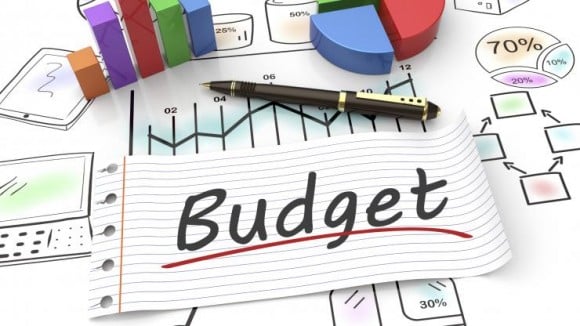6 Money Management Tips for You to Launch Your Successful Blogging Career

I used to work a traditional 9-to-5 office job, and it has its good and bad sides. On one side, I experienced job security, work benefits, scheduled time off, and a level of comfort that my freelance career doesn’t allow for. On the other side, that job security made for a pretty boring life, and it grew old fast. That’s why I began focusing more of my attention and time toward freelance projects, until I successfully launched my blogging and writing career.
The upside to being my own boss and monetizing my blog is that I could set my own schedule, work at my own pace, and can even take time off without needing to ask for anyone’s permission. What I didn’t expect starting out was to suddenly be in charge of finding enough work to sustain me, or even live on what started out as a very tight budget. I had to manage all of my invoices, all of my clients, all of the different projects that I was juggling at any given time, and both file and pay for all of my taxes alone. Self-employed status isn’t everything it’s generally thought to be, and I learned that the hard way.
Aside from knowing where I could find the best resources to make my blog financially successful, overall money management was my biggest challenge starting out. I had to pick it all up very quickly by myself since I couldn’t afford to hire someone to do the work for me at first. It’s why I’ve decided to help other young bloggers launch their career while avoiding the worst mistakes I made. Here are six of the most important tips I can share with any budding blogger if they want to manage their finances in the best possible way from the start.
Money Management Tips for Freelance Bloggers
1. Get On a Budget
Budgeting your money is essential, especially since you no longer have a consistent income. Use a website like Budget Pulse, Mint, or BudgetTracker (all of which are free), or create your own spreadsheet with Microsoft Excel. Enter exact figures for your fixed monthly bills, and estimate your entertainment and food expenses. Your credit card statements may break down spending by category, so let them guide you. For your income, take an average from the previous few months. The ultimate goal here is to get a better idea of where your money goes on a monthly basis.
As a freelancer, one of the most important things you should budget for is the slow months of work—calculate how much money you need to get by every month, and make sure you’ve organized an emergency fund that equals about three months of that. You’re not making a fixed income any more, and you need to be able to plan for the eventuality that there’s a month or two in your year where you have few to no projects to work on.
2. Cut Monthly Expenses
Starting out your blogging career, you should expect to live on a shoe-string budget while you get adjusted and familiar with the unique challenges that come with freelance work. That means cutting back on as many of your regular expenses as possible.
Eliminate your landline telephone if it’s not essential, and review your satellite TV package and smartphone data plan—if you can drop down one tier and still meet your needs, go ahead. Only run your dishwasher and washing machine when they’re full, and cut back on your nightly shower by a few minutes to pare back your water bill. Digital and paper coupons can help you save hundreds of dollars on groceries, and scheduling a home energy audit through your provider can reveal plenty of ways to cut those expenses.
3. Start a Rainy Day Fund
As I mentioned for your budgeting, make sure to put together an emergency fund that covers at least one full month of your essential expenses, such as rent, food, utilities, gas, and any kind of insurance you might be paying for.
That is the bare minimum for an emergency fund. As you book more clients and charge more money for your services, consider setting aside an extra 2-3 months’ worth of savings to help you deal with a possible accident, car maintenance surprise, or any other unplanned event that can cost you a lot of money.
4. Lower Credit Card Balances
If credit card debts are part of your financial picture, start reducing them immediately. Total up your balances, include a line on your budget with an amount it can handle, and start sending in bigger payments until they’re gone for good. Create mini-goals along the way—knocking down $1,000 worth of debt every six months, for example—and when you reach one, reward yourself with a modest dinner out at a nice restaurant. Celebrating your accomplishments can go a long way toward keeping you focused.
5. Find Cheaper Entertainment
If you really want to make this freelance blogging career work, you have to prioritize it over all else, including some of the more expensive activities you might usually enjoy partaking in.
Instead of bar hopping, invite friends and family over for a few cocktails and a board game night. Replace trips to the movie theater with DVDs from Redbox kiosks, which only cost a little over $1 per day. If you feel the itch to venture out, use deal of the day websites like Groupon or LivingSocial which offer entertainment vouchers for 50% off or more at times.
That said, it’s also the simple in things in life that you can enjoy the most—and at no cost. Go out with your friends and spend the day at a park, throwing a ball at each other. Go jump feet first into a puddle. Throw that snowball at your sibling and see the awesome snowball fight that ensues. You’ll have a blast—at no cost!
6. Travel Frugally
Research your airfare for upcoming vacations at a website like Kayak or SkyScanner to get the best deal. Book a hotel room with cooking facilities and save money on meals. Avoid car rental insurance by paying with a credit card that includes that benefit. There are a ton of ways to save on travel. You just have to put your thinking cap on and make a few sacrifices.
Make sure to track all of your travel expenses—they’re tax deductible for the self-employed if you’re traveling to meet with clients or do anything work-related that requires travel.
Final Thoughts
All of the advice shared here focuses on how to be careful about the money you make as a full-time blogger—the life of a freelancer is both very free and very restrictive at the same time. On one side, you have the freedom to set your own schedule, on the other you’re now responsible for finding your work, managing your income as it probably won’t be a fixed number every month, and now pay taxes out of pocket instead of deducted from your salary every month before you even get paid.
Pay close attention to the things you now need to manage for your freelance success. But make sure that your need to make money doesn’t completely take you away from exploring life, the world, and your interests either. The fine line between focusing on your responsibilities and enjoying the freedom that comes with being self-employed is sometimes hard to perceive, I know. But once you understand how to balance both responsibilities and freedom, you’ll find a sense of purpose and fulfilment that no traditional job could ever really offer you.
Do you know of any other personal finance tips for beginning full-time bloggers?
About the author: Juliana Simms is a freelance writer and editor. After devoting the first ten years of her professional life to corporate America, she decided to take back control and launch her blogging career back in 2015. Having found success as a writer and consultant, she feels like she’s finally living her version of the American Dream.




